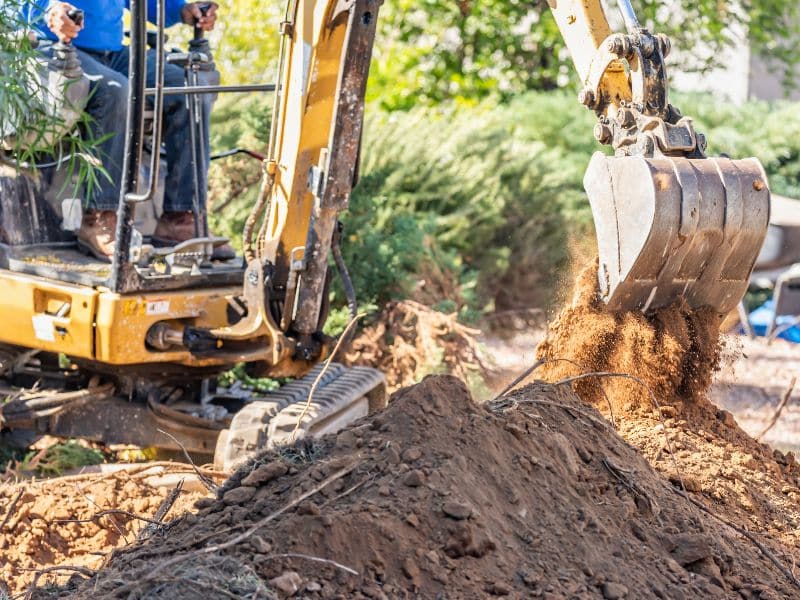Excavation is a fundamental step in many construction and landscaping projects. Whether you’re digging a foundation for a new building, installing utilities, or creating a swimming pool, proper excavation is essential for a successful outcome. However, excavation can be a complex and potentially hazardous task, and mistakes can lead to costly delays, safety hazards, and damage to property and the environment. In this guide, we’ll explore some common excavation mistakes and provide tips on how to avoid them.
Inadequate Planning
MistakeOne of the most common excavation mistakes is inadequate planning. Starting without a well-thought-out plan can lead to errors in excavation depth, location, or alignment.
How to Avoid: Before starting any excavation, create a detailed plan that includes accurate measurements, depth requirements, and clear markings of underground utilities. Consult with a professional engineer or surveyor if needed to ensure accuracy.
Failing to Locate Utilities
Mistake: Digging without knowing the location of underground utilities such as gas lines, water pipes, or electrical cables can be dangerous and lead to costly damage.
How to Avoid: Always call 811 or your local utility locating service before digging. They will mark the locations of underground utilities so you can avoid them during excavation.
Incorrect Sloping and Benching
Mistake: Improper sloping and benching of excavation walls can result in collapses, cave-ins, or hazardous working conditions.
How to Avoid: Follow the appropriate sloping and benching guidelines based on the type of soil and depth of the excavation. Consult OSHA regulations and consider hiring a qualified excavation contractor to ensure compliance.
Overexcavation
Mistake: Excavating more material than necessary can increase project costs and may result in unstable conditions.
How to Avoid: Carefully calculate the required excavation depth and volume based on project specifications. Avoid overexcavation by regularly checking measurements during the excavation process.
Poor Soil Management
Mistake: Neglecting to manage excavated soil properly can lead to soil erosion, environmental damage, and logistical problems on the construction site.
How to Avoid: Develop a soil management plan that includes strategies for stockpiling, disposing of, or reusing excavated soil. Implement erosion control measures to prevent soil runoff.
Neglecting Safety Measures
Mistake: Failing to prioritize safety during excavation can result in accidents, injuries, and even fatalities.
How to Avoid: Ensure that all workers are properly trained and equipped with appropriate safety gear. Follow safety guidelines and regulations, including the use of protective barriers, shoring, or trench boxes when necessary.
Inaccurate Digging Equipment
Mistake: Using the wrong equipment for excavation tasks can lead to inefficiencies and potential damage.
How to Avoid: Select the appropriate digging equipment, such as excavators, backhoes, or trenchers, based on the project’s size, scope, and soil conditions. Ensure that equipment operators are trained and experienced.
Lack of Soil Testing
Mistake: Neglecting soil testing can lead to unexpected soil conditions that affect the stability of the excavation.
How to Avoid: Conduct soil testing to assess soil composition and characteristics before excavation begins. This information will help determine the appropriate excavation methods and safety precautions.
Inadequate Documentation
Mistake: Failing to document excavation processes, including measurements, depth, and safety measures, can lead to disputes, delays, and liability issues.
How to Avoid: Maintain accurate records throughout the excavation process. Document measurements, equipment used, safety precautions taken, and any unexpected conditions encountered.
Skipping Inspections
Mistake: Neglecting to conduct regular inspections during excavation can result in unnoticed problems or safety hazards.
How to Avoid: Schedule regular inspections by qualified professionals to assess the excavation’s progress and safety compliance. Address any issues promptly to prevent further complications.
In summary, avoiding excavation mistakes requires thorough planning, adherence to safety regulations, proper equipment, and diligent oversight. It’s essential to prioritize safety, accuracy, and environmental responsibility throughout the excavation process. When in doubt, consult with experienced excavation contractors or professionals who can provide guidance and expertise to ensure a successful excavation project.

